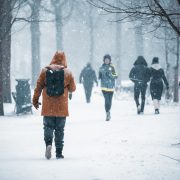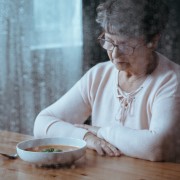At Home Activities For Seniors
Seniors with Alzheimer’s disease or another type of dementia want and thrive from connection and fulfillment, just like everyone else. There are stimulating, interactive activities for seniors with dementia that offer fun, creative, and productive ways to spend time with your loved one.
Fulfilling Activities For People With Dementia At Home
Seniors with dementia, like all of us, enjoy the feeling of a job well done. Failure-free activities provide daily accomplishments and increase feelings of self-worth. Choose an activity based on the person’s level of cognitive decline — ideally something that will make them feel productive.
- Fold laundry- Soft fabrics and a repeated motion can be calming. Plus, classic detergent smells may elicit comforting memories. Start with easy items like hand towels and T-shirts.
- Simulate handy tasks- If your aging relative always loved to tinker, suggest a project with visible results. Painting wooden boards and fitting together PVC pipes are good activities for seniors with high motor function.
- Untie knots- Tie loose knots along a thick rope. The elderly person may enjoy untying them, though avoid making the knots too tight or using a rough rope.
- Do a puzzle- Pick a puzzle with large, tactile pieces. Wooden color or shape puzzles help with matching and are fail-safe.
Sensory Activities For People With Dementia
- Stop and smell the roses (or coffee, fresh cut grass, or warm bread)-
Studies suggest smells trigger more vivid emotional memories than images, according to Harvard scientists. This is because scents are processed by the hippocampus and the amygdala, the same parts of our brains that control memories. - Explore familiar objects- Tactile exploration can bring up memories that may not be accessible through pictures or verbal prompting. Even if your loved one doesn’t remember their first car or their wedding, the feeling of weighty keys or hand-embroidered pearls could encourage reminiscence.
- Have a taste of history- Tastes can elicit emotions and memories.
- Feel diverse textures- Unique textures provide sensory stimulation, as well as memory cues. If your aging family member is a pet lover, consider the soft fur of an animal. If they liked to garden, suggest touching damp soil or leaves.
Technology-Based Dementia Activities For Seniors
Technology use has wide-reaching health and safety benefits for seniors. Immersive tech can also provide mind-stimulating activities for people with dementia at home.
- Explore the world with live cams- Zoos, nature preserves, and aquariums around the world offer Internet live streams for animal lovers. Many art museums, like the Louvre in Paris, offer continuous live tours of their galleries.
- Travel the world with Google Earth- Google Earth allows users to upload photos from across the globe. If there’s a place your relative loves — whether it’s their childhood hometown or the Sahara Desert — you can load the location into Google Earth and let them explore.
- Create a family video tablet for dementia patients at home-
Technology can help families stay connected through video calls and chats. But when relatives aren’t available to talk, their presence can still be comforting. Record videos of family members, favorite pets, and big moments and upload them onto a tablet your loved one can use when they’re feeling restless or having trouble sleeping.










